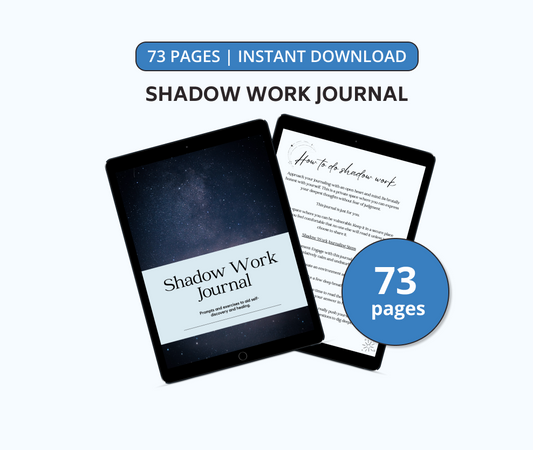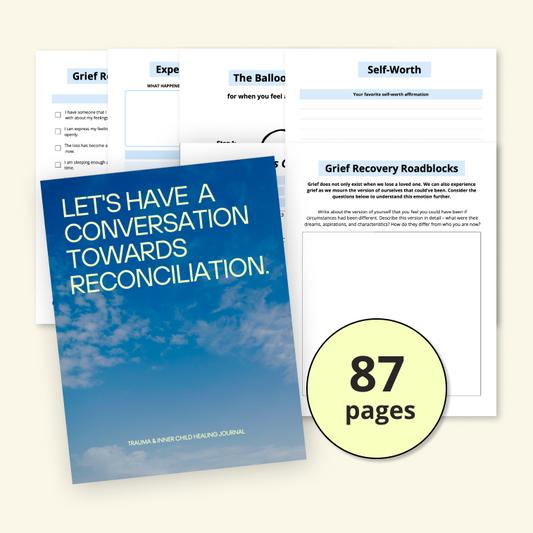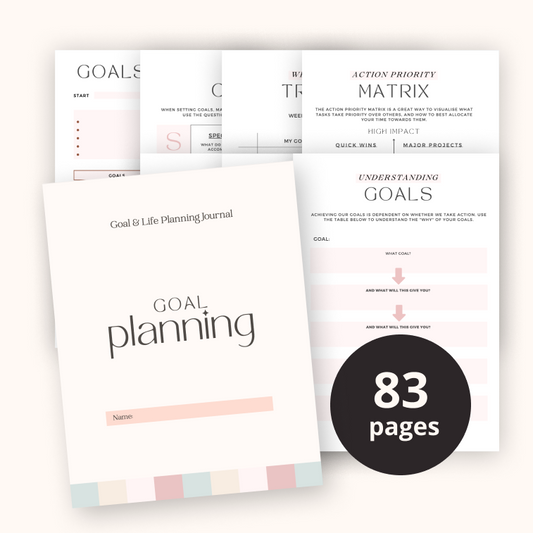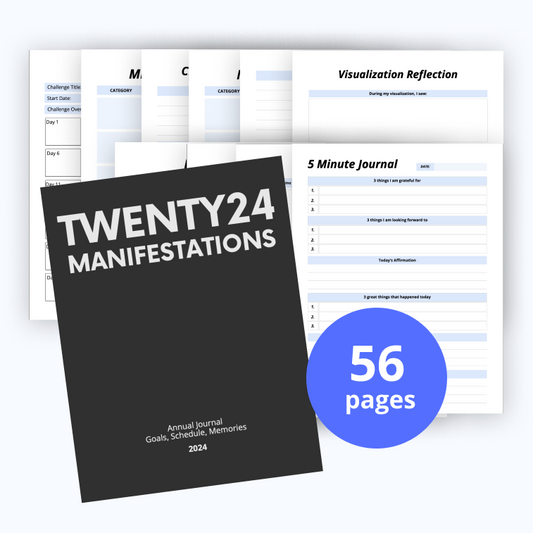Anxiety can feel like being caught in a storm - with multiple, repetitive thoughts and emotions crashing in all at once.
You’re not alone in this.
Millions grapple with anxiety daily, seeking support to guide them to calmer thoughts. It’s a journey that requires patience, understanding, and the right tools to navigate.
In this guide, you’ll discover coping strategies that act as your anchor when anxiety strikes.
From mindfulness techniques that ground you in the present to lifestyle changes that foster a more serene state of mind, you’ll learn how to handle your anxiety with grace and strength.
Let’s begin on this journey together, transforming challenges into stepping stones towards a more peaceful life.
Understanding Anxiety
Ever feel like your mind’s a runaway train during rush hour—packed, fast, and loud?
That’s anxiety for you.
It’s like your brain’s throwing a party, and worry’s the guest of honor.
Most of us have been there, staring at the ceiling at 3 a.m., wondering if we’ll ever catch a break.
Think of anxiety as your body’s natural alarm system.
It’s like a well-meaning friend who’s a bit too eager to warn you about, well, everything.
Back in the caveman days, this was super useful!
... But fast-forward to today, and our triggers have morphed from saber-toothed tigers to overflowing inboxes and social media notifications.
Why Does Anxiety Feel So Heavy?
Here’s the kicker: when you’re anxious, your body gears up for action.
Hello, adrenaline!
This would be helpful if you needed to sprint away from danger. Not so much when the threat’s a looming deadline or a tricky conversation.
Anxiety’s not just in your head, either. It’s a full-body experience.
Racing heart? Check.
Sweaty palms? Yep.
Feeling dizzy? Got that too.
Your body’s preparing to face a challenge, even if that "challenge" is just a hefty to-do list.
Exploring Through the Storm
Understanding anxiety’s a bit like learning to read your own personal weather forecast.
Some days, you know there’s a storm brewing. Other days, it’s sunshine and smooth sailing.
The trick’s learning how to weather the storms without capsizing your boat.
Mindful breathing can help hit the pause button in the middle of an anxiety attack.
Taking a moment to focus on your breath can help dial down the alarm bells and bring you back to the present.
Exercise can also do wonders for anxiety.
Don’t worry, you don’t need to become a marathon runner overnight. Just some movement — be it yoga or a quick walk — can burn off that extra energy and giving your mind something else to focus on.
Finally, don’t underestimate the power of a good laugh and connection with others.
Anxiety tends to isolate us, so reaching out to friends or diving into a guided journal (hint, hint) can help you feel less alone in the struggle.
Mindfulness Techniques for Calmness
So, you’re riding the anxiety train, feeling like it’s zooming a million miles an hour.
Guess what? You’re not the conductor, but you sure can learn how to slow it down.
Welcome to mindfulness techniques — your invisible brake pedal to snatch back some peace and quiet in your head.
Say Hello to Your Breath
Breathing — you do it all the time, but are you really doing it right?
When done right, mindful breathing can act like a pause button on your thoughts.
Here’s how to try it:
- Set a timer for 5 minutes.
- Sit comfortably, close your eyes, and pay attention to how you’re breathing — in, out, in, out.
- When your mind wanders (and trust us, it will), gently usher it back to your breath.
Simple, right? But oh, so powerful.
It’s like telling your body, "Hey, it’s cool. We got this."
Grounding: The 5-4-3-2-1 Game
Feel like you’re floating in a space of worry?
Grounding techniques can help bring you back to planet Earth.
Here’s a fun one: the 5-4-3-2-1 game.
Look around and notice:
- 5 things you can see.
- 4 things you can touch.
- 3 things you can hear.
- 2 things you can smell.
- 1 thing you can taste.
This technique is like a sensory checklist that can calm your mind by focusing on the now. It’s perfect for those moments when you need a quick fix to stop the anxiety spiral.
Get Creative with Guided Journals
Who said dealing with anxiety can’t be a bit artistic?
Guided journals from Wholesome sprinkle a little creativity into your coping strategies.
These aren’t your ordinary planners. They’re packed with prompts, exercises, and reflections designed to guide you through your thoughts and feelings.
It’s like having a conversation with a friend who’s always ready to listen.
Plus, jotting down your stresses can make them seem a lot less scary.
Lifestyle Changes for Serenity
Let’s face it, dealing with anxiety can feel like you’re constantly trying to herd cats — frustrating and nearly impossible.
But, amidst the chaos, small lifestyle tweaks can bring surprising peace to your life.
You’ve already learned about the power of mindfulness and the magic of guided journals from Wholesome.
Now, let’s talk about shaking up your routine for a calmer you.
First off, exercise helps regulate your mood and thoughts. It’s your brain’s best friend when it comes to blasting anxiety.
Hit the pavement for a run, dance like nobody’s watching, or even take a brisk walk.
The goal? To release those feel-good hormones, endorphins.
You’ll not only feel more relaxed but also snag a better night’s sleep.
Speaking of sleep, let’s address the elephant in the room.
Scrolling through social media or binge-watching through the night won’t do your anxiety any favors.
Create a wind-down routine that signals your brain it’s time to snooze.
Maybe it’s reading a chapter of a book (hey, why not make it a guided journal from Wholesome?) or practicing some gentle yoga.
Onto nutrition.
You are what you eat, and your diet plays a big role in managing anxiety.
We’re not talking about a joyless existence of kale smoothies and quinoa bowls (unless that’s your jam, of course).
But, reducing caffeine and sugar can prevent those jitters and crashes that amplify anxiety.
Instead, hydrate well and nourish your body with a mix of fruits, vegetables, and proteins to keep your energy stable throughout the day.
Finally, don’t underestimate the power of connection.
Anxiety can often make you want to retreat into your shell, but isolation is a no-go. Chat with a friend, join a club, or volunteer.
These connections can provide support, distract you from anxious thoughts, and remind you that you’re not alone in this.
Don’t forget, these changes won’t flip a magic switch on your anxiety.
But with patience and persistence, they can significantly improve your quality of life.
And with Wholesome’s guided journals at your side, exploring your thoughts and emotions through this journey can become a little less daunting and a lot more manageable.
Building a Support System
When dealing with anxiety, it’s like being stuck in quicksand; the harder you struggle, the deeper you sink.
But what if you had a group of friends tossing you a lifeline? That’s what building a support system is all about.
Let’s talk about how having the right people around can make a world of difference.
Why You Need a Community
Don’t forget, it’s totally okay to lean on others when the going gets tough.
Here’s why having a strong support system is not just nice, but necessary:
- Shared experiences: Sometimes, just knowing someone else has been where you are makes a big difference.
- A sounding board: Got a head full of worries? Talking them through with someone can help you untangle them.
- Stress relief: Ever laugh so hard with a friend that you forget what you were anxious about? Yeah, that.
Finding Your People
So, where do you find these mythical, supportive beings? They’re closer than you think:
- Friends and Family: These are your go-to people for emotional support, and they likely already want to help.
- Support Groups: There are tons of groups both online and in-person for just about any anxiety-related challenge you can think of.
- Therapists and Counselors: Professionals who can guide you through managing your anxiety with tried-and-true methods.
Wholesome’s Role in Your Journey
Here at Wholesome, we get it — writing down your thoughts and feelings in our guided journals can sometimes kick up more dust than you expected. That’s why integrating these practices with a robust support system can be a real game-changer.
Exploring anxiety isn’t a solo mission. With the right people beside you and a journal from Wholesome in hand, you’re equipped to face the challenges head-on.
Don’t forget, it’s about building a team where each member, including self-help tools like journals, plays a crucial role in your journey toward managing anxiety.
Practicing Self-Care
When anxiety’s got you in a chokehold, self-care is your escape plan.
Imagine it as hitting the reset button on your mental state. And no, we’re not just talking about bubble baths and scented candles (though they’re great).
Self-care is about doing things that recharge you, both mentally and physically.
Trust us, it’s as crucial as your morning coffee.
What Counts as Self-Care?
Anything that makes you feel like you can take on the world again.
Here are some no-fail strategies:
- Get Moving: Exercise isn’t just for those gym selfies. A 30-minute walk or a quick yoga session can boost your mood like nobody’s business.
- Eat Smart: No, we’re not your mom telling you to eat your veggies, but... eat your veggies. Nutrition plays a big part in managing anxiety.
- Sleep Well: Aim for 7-9 hours. Yes, Netflix can wait. Good sleep is a game-changer for mental health.
- Wholesome’s Guided Journals: Yep, we have to plug our baby here. Our journals are like a personal cheerleader, helping you navigate through those anxious thoughts.
Why It Works
Self-care isn’t just fluffy talk. It’s backed by science.
Taking care of your body helps ease your mind. You’re creating a strong foundation that anxiety has a harder time shaking.
Moving your body releases endorphins, those feel-good hormones that laugh in the face of anxiety.
Eating well provides the nutrients your brain needs to combat stress.
Sleep recharges your brain, making it less vulnerable to anxiety’s sneaky attacks.
And yes, journaling? It gives your thoughts an exit strategy out of your brain.
Embracing self-care isn’t just about indulgence; it’s a critical strategy in your battle against anxiety.
By prioritizing activities that nourish both your body and mind, you’re setting the stage for a more resilient self.
Don’t forget, the journey to overcoming anxiety is unique for everyone, and incorporating a mix of exercise, nutrition, rest, and tools like Wholesome’s Guided Journals can make all the difference.
Start small, stay consistent, and watch as these practices transform your approach to anxiety management. You’ve got this.




